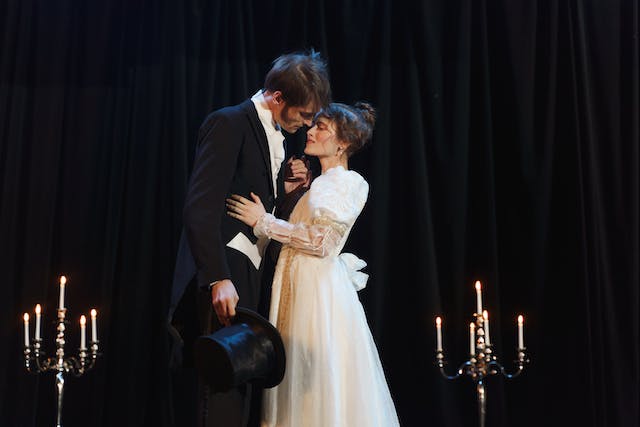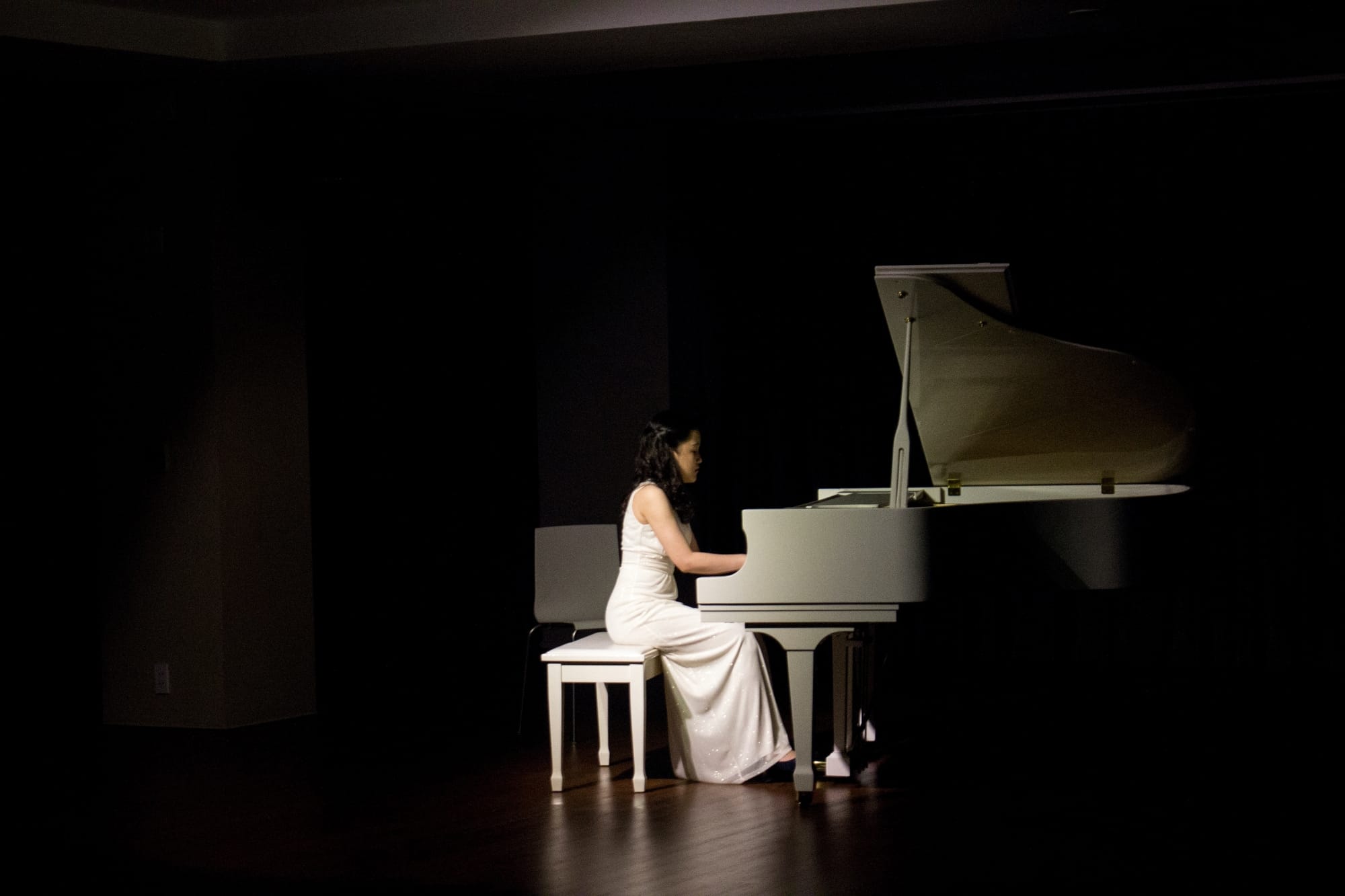
Opera Arias For Intermediate Singers
Many vocal students, and teens and adults in particular, start taking voice lessons in Houston or elsewhere because they want to sing particular pieces of music. Sometimes, a student loves opera and wants to learn famous arias.
But arias can be tricky! Beginning and intermediate vocalists may have a hard time choosing skill level-appropriate literature. Speak with your voice teacher about good arias for your voice type, skill level, and technical ability, but here is a rough guide that may help you. Bear in mind that if you must strain to hit high notes in the aria, or if you can only “fake” your way through difficult scales or arpeggios in the music, you should probably choose an easier piece of repertoire.
"Che farò senza Euridice?" from "Orfeo ed Euridice" by Christoph Willibald Gluck
Gluck's "Che farò senza Euridice?" offers a beautiful introduction to the classical style. Its straightforward melody and moderate range make it an excellent choice for intermediate baritones or mezzo-sopranos. The aria requires singers to convey deep grief and longing, providing an opportunity to explore emotional depth without the pressure of intricate coloratura or extreme vocal ranges. This aria allows singers to focus on breath control and legato singing, key skills at this stage of development.
"Voi che sapete" from "Le Nozze di Figaro" by Wolfgang Amadeus Mozart
Mozart's operas are a treasure trove for singers. "Voi che sapete" is a gem for intermediate mezzo-sopranos or sopranos. This aria, sung by the character Cherubino, is a testament to youthful innocence and love. Its charm lies in its simplicity and the delicate vocal lines that require clarity and control. The aria's range is manageable for most singers, and it introduces the singer to the nuances of portraying character through music.
"Una furtiva lagrima" from "L'elisir d'amore" by Gaetano Donizetti
For tenors, "Una furtiva lagrima" from Donizetti's "L'elisir d'amore" is an ideal choice. This aria allows intermediate singers to explore the bel canto style, known for its emphasis on beautiful, fluid vocal lines. The aria's range is comfortable for most tenors, and it includes opportunities to practice sustained notes and legato phrasing. The emotional depth of the aria, expressing a moment of joyful realization, also provides an excellent platform for expressive singing.
"O mio babbino caro" from "Gianni Schicchi" by Giacomo Puccini
Puccini's "O mio babbino caro" is a favorite among sopranos. This aria is short, yet it offers a wealth of interpretative possibilities. Keep in mind that this aria is quite high – it will be challenging not in a technical sense, but in the singer’s ability to make it beautiful. Its straightforward melodic line makes it accessible, but the challenge lies in conveying the character's emotions effectively. The aria requires control over dynamics and phrasing, making it a valuable piece for intermediate singers to develop expressive singing skills.
"Largo al factotum" from "Il barbiere di Siviglia" by Gioachino Rossini
Intermediate baritones will find Rossini's "Largo al factotum" both challenging and enjoyable. Known for its energetic and boastful character, this aria from "Il barbiere di Siviglia" is a staple in the baritone repertoire. It introduces singers to the demands of the Rossini style, including rapid articulation and dynamic contrast. While the aria is technically challenging, its range and tessitura are manageable for most intermediate singers.
"Porgi, amor" from "Le Nozze di Figaro" by Wolfgang Amadeus Mozart
Another Mozart masterpiece, "Porgi, amor" is a splendid choice for intermediate sopranos. This aria demands control and purity of tone, with long, flowing lines that require good breath support. The emotional content of the aria, portraying heartache and longing, offers singers the chance to delve into more profound interpretative aspects. The technical demands are not overwhelming, making it a fitting piece for intermediate level.
"Di Provenza il mar" from "La Traviata" by Giuseppe Verdi
Verdi's "Di Provenza il mar" is an excellent aria for intermediate baritones. This aria from "La Traviata" allows singers to explore the Verdi style, characterized by its dramatic intensity and lyrical melodies. The range is comfortable for most baritones, and the aria provides opportunities to work on legato singing and expressiveness.
"Si, mi chiamano Mimi" from "La Bohème" by Giacomo Puccini
For sopranos, "Si, mi chiamano Mimi" from Puccini's "La Bohème" is an excellent introduction to the composer's style. The aria is lyrical and expressive, requiring a blend of vocal beauty and dramatic expression. It offers a moderate range, making it accessible to intermediate singers, and provides a platform to develop skills in phrasing and dynamics.
Use This As a Rough Guide - Consult Your Teacher
We offer singing lessons in Katy and voice lessons in Pearland, in addition to our lessons in Houston. We often help intermediate singers find the right repertoire for their range, and we always work with students to find music that they love. If you need help finding the right piece, get in touch.





